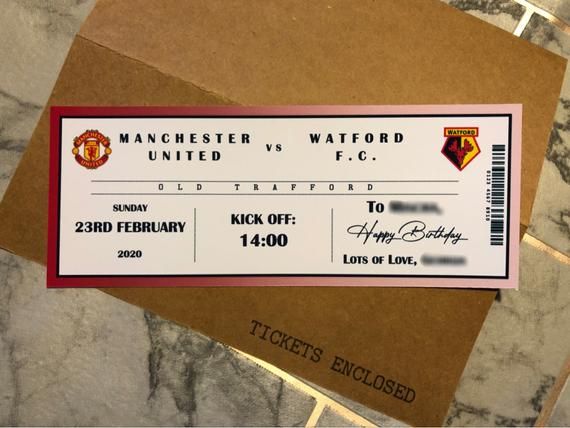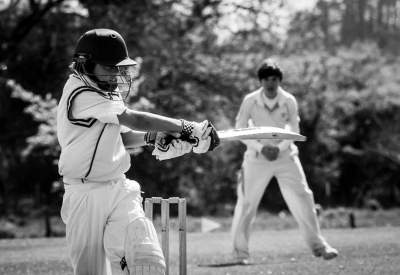What Is Fake Fielding In Cricket
Cricket is a game that has been around for centuries and is loved by millions of fans around the world. It is a game of strategy and skill, where players have to constantly think on their feet and be ready to adapt to any situation. However, like any other sport, cricket too has its fair share of controversies and one such controversy is the issue of “fake fielding”.
Fake fielding is a term used to describe a situation where a fielder deliberately pretends to field the ball in order to deceive the batsman or the non-striker. This is generally done to prevent the batsman from taking a run or to create an opportunity for a run-out. While fake fielding may seem like a harmless tactic, it is actually against the rules of the game and can result in a penalty for the fielding team. In this article, we will delve deeper into what fake fielding is, why it is considered unethical, and what the consequences of this tactic can be.
What is Fake Fielding in Cricket?
Fake fielding is a deceptive act that occurs during a cricket game. It is when a fielder pretends to field the ball, causing the opposing team’s batsmen to change their running path, leading to a possible run-out. It is an illegal act and can result in a penalty for the fielding team.
How Does Fake Fielding Work?
Fake fielding is a tactic used by fielders to deceive the opposing team’s batsmen. It typically occurs when a fielder pretends to field the ball, either by diving or stopping the ball with their foot or hand. This action is meant to make the batsmen believe that the ball has been fielded, causing them to change their running path.
It is important to note that there is a difference between genuine fielding mistakes and fake fielding. Genuine fielding mistakes occur when a fielder genuinely misses the ball. However, fake fielding is a deliberate and deceptive act.
Why is Fake Fielding Illegal?
Fake fielding is considered an illegal act in cricket because it violates the spirit of fair play. It is a form of cheating that is used to gain an unfair advantage over the opposing team. It can also cause confusion and frustration for the batsmen, leading to unnecessary run-outs.
If a fielder is found guilty of fake fielding, a penalty of five runs will be awarded to the batting team. In addition, the fielding team may also receive a warning or a suspension if the act is deemed intentional.
How Can Fake Fielding be Detected?
Fake fielding can be difficult to detect, especially if it is done subtly. However, there are certain signs that umpires and officials look for to determine if fake fielding has occurred. These signs include:
1. The fielder making a deliberate and unnecessary movement towards the ball
2. The fielder stopping the ball with their foot or hand when they could have easily used their body
3. The fielder diving towards the ball when it is clearly out of reach
4. The fielder pretending to throw the ball when they do not have possession of it
If any of these signs are observed, the umpires may award a penalty to the batting team.
The Benefits of Fair Play in Cricket
Fair play is an essential part of cricket, and it is important that all players and teams uphold the spirit of the game. Fair play ensures that the game is played in a respectful and sportsmanlike manner, and it promotes healthy competition between teams.
In addition, fair play helps to build trust and respect between players, teams, and officials. It also helps to create a positive and enjoyable experience for spectators and fans.
Fake Fielding vs. Genuine Fielding Mistakes
It is important to differentiate between fake fielding and genuine fielding mistakes. Genuine fielding mistakes occur when a fielder genuinely misses the ball. This is a common occurrence in cricket, and it is not considered an illegal act.
Fake fielding, on the other hand, is a deliberate and deceptive act that is used to gain an unfair advantage over the opposing team. It is an illegal act and can result in a penalty for the fielding team.
The Consequences of Fake Fielding
Fake fielding can have serious consequences for the fielding team. If a fielder is found guilty of fake fielding, a penalty of five runs will be awarded to the batting team. In addition, the fielding team may also receive a warning or a suspension if the act is deemed intentional.
Fake fielding can also damage the reputation of the fielding team and its players. It is important that all players and teams uphold the spirit of fair play in cricket and avoid engaging in deceptive or illegal acts.
The Importance of Umpires in Detecting Fake Fielding
Umpires play a crucial role in detecting fake fielding in cricket. They are responsible for ensuring that the game is played in a fair and sportsmanlike manner.
Umpires are trained to look for signs of fake fielding, and they have the authority to award penalties to the batting team if such acts are detected. It is important that umpires remain vigilant and enforce the rules of the game to ensure that fair play is upheld.
The Role of Players in Upholding Fair Play
Players also play an important role in upholding fair play in cricket. It is their responsibility to ensure that they play the game in a respectful and sportsmanlike manner.
Players should avoid engaging in any deceptive or illegal acts, including fake fielding. They should also be respectful towards their opponents, officials, and spectators, and avoid any behavior that may be seen as unsportsmanlike.
The Importance of Fair Play in Building Positive Relationships
Fair play is essential in cricket, as it helps to build positive relationships between players, teams, and officials. It promotes healthy competition and ensures that the game is played in a respectful and sportsmanlike manner.
Fair play also helps to create a positive and enjoyable experience for spectators and fans. It is important that all players and teams uphold the spirit of fair play in cricket and work towards building positive relationships both on and off the field.
The Role of Officials in Promoting Fair Play
Officials play a crucial role in promoting fair play in cricket. It is their responsibility to enforce the rules of the game and ensure that all players and teams uphold the spirit of fair play.
Officials should remain vigilant and look for any signs of fake fielding or other deceptive acts. They should also be respectful towards players, teams, and spectators, and avoid any behavior that may be seen as unsportsmanlike.
Overall, fair play is an essential part of cricket, and it is important that all players, teams, and officials uphold the spirit of the game. Fake fielding is an illegal act that violates the principles of fair play and can have serious consequences for the fielding team. By working together to promote fair play, we can ensure that cricket remains a respectful and enjoyable sport for all.
Frequently Asked Questions
Here are some common questions and answers about fake fielding in cricket.
What is fake fielding in cricket?
Fake fielding is when a fielder pretends to field the ball without actually touching it, in an attempt to deceive the batsman. This is considered to be against the rules of cricket and can result in a penalty for the fielding team.
The act of fake fielding can also be used to distract the batsman or to create confusion among the fielders. It is important for fielders to make a genuine attempt to field the ball and not engage in any deceptive behavior.
How is fake fielding penalized in cricket?
If a fielder is found to have engaged in fake fielding, the umpire can award a 5-run penalty to the batting team. This can happen if the umpire determines that the fielder did not make a genuine attempt to field the ball or if the fielder pretended to field the ball without actually touching it.
In some cases, the umpire may also give the fielder a warning or even eject them from the game if the behavior is deemed to be deliberate and unsportsmanlike.
Are there any exceptions to the fake fielding rule in cricket?
There are some situations where fake fielding is allowed in cricket. For example, if a fielder is attempting to stop the ball from going out of bounds and pretends to field the ball in order to keep it in play, this is not considered to be fake fielding.
Additionally, if a fielder is attempting to distract the batsman with their movements or actions but does not actually deceive them into believing they have fielded the ball, this is also not considered to be fake fielding.
What is the difference between fake fielding and obstructing the field in cricket?
Fake fielding and obstructing the field are two different rule violations in cricket. Fake fielding is when a fielder pretends to field the ball without actually touching it while obstructing the field is when a batsman intentionally obstructs a fielder in the act of fielding the ball.
The penalty for obstructing the field can vary but is generally considered to be more severe than the penalty for fake fielding. Obstructing the field can result in the batsman being given out or even being ejected from the game, while fake fielding usually results in a 5-run penalty.
How can teams prevent fake fielding in cricket?
Teams can prevent fake fielding by emphasizing the importance of fair play and sportsmanship to their players. Coaches and captains can also remind players of the rules around fake fielding and the potential penalties for engaging in this behavior.
Umpires can also play a role in preventing fake fielding by monitoring the behavior of fielders and penalizing any instances of deceptive or unsportsmanlike behavior. By enforcing the rules around fake fielding, umpires can help ensure that the game is played fairly and that all players have an equal chance to succeed.
Fake Fielding Rule in Cricket Explained
In the world of cricket, the term “fielding” is used to describe the act of fielding the ball and preventing the opposing team from scoring runs. However, in recent years, a new phenomenon has emerged known as “fake fielding.” This refers to the act of deliberately pretending to field the ball in order to deceive the opposing team into making a mistake. While it may seem like a harmless tactic, fake fielding is actually against the rules and can result in penalties for the offending team.



